Aquatic Turtle Starter Guide
By: Charlotte Maxwell
BE ADVISED: The sale and purchase of turtles and tortoises is illegal within the state of New Jersey. If you wish to legally acquire a turtle you must obtain a license from the NJ Department of Fish and Wildlife and purchase your turtle from legal captivity out of state (you will need to provide proof of purchase). The Department of Fish and Wildlife does not issue permits for turtles taken from the wild. It is unlawful and inhumane to capture a wild turtle to keep as a pet or to release a pet turtle into the wild. Pet turtles are a decades-long commitment and we must always strive to improve their care.
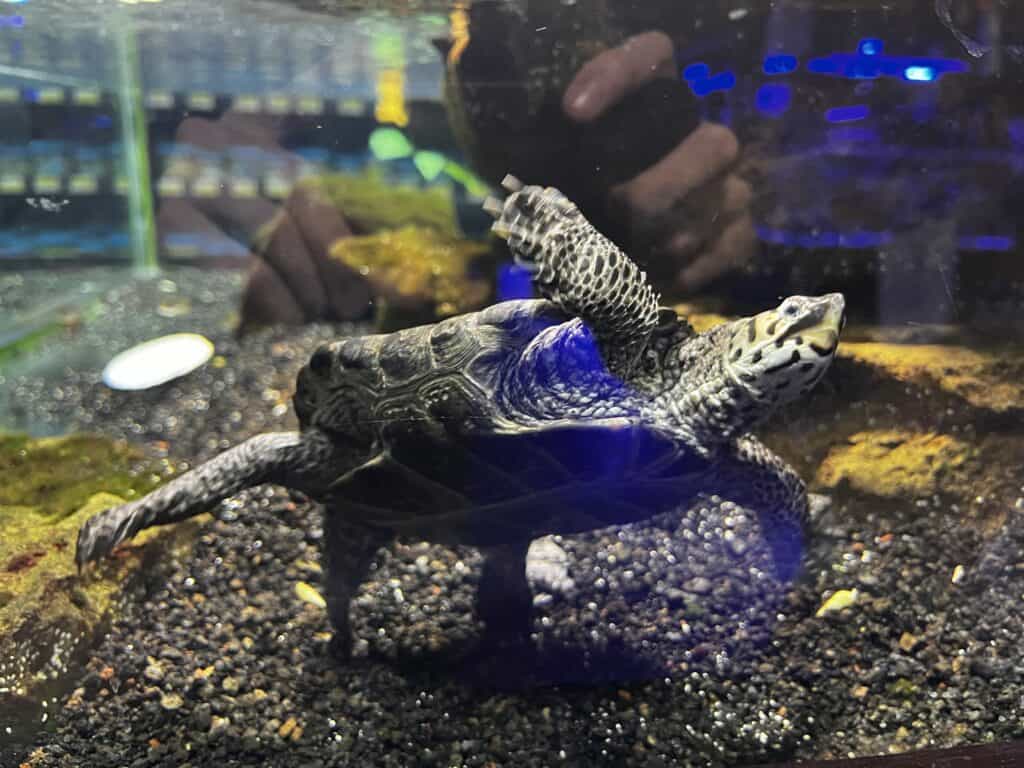
What Do I Need to Keep an Aquatic Turtle?
Large Enclosure: turtles need both ample swimming room and a safe, contained place to get out of the water and dry off.
- Most species of aquatic turtles will need an enclosure that is at least equivalent to a 75-gallon tank. Turtles smaller than 4 inches are not legal to keep in New Jersey, and some species of aquatic turtle can grow as large as 12 inches across the shell.
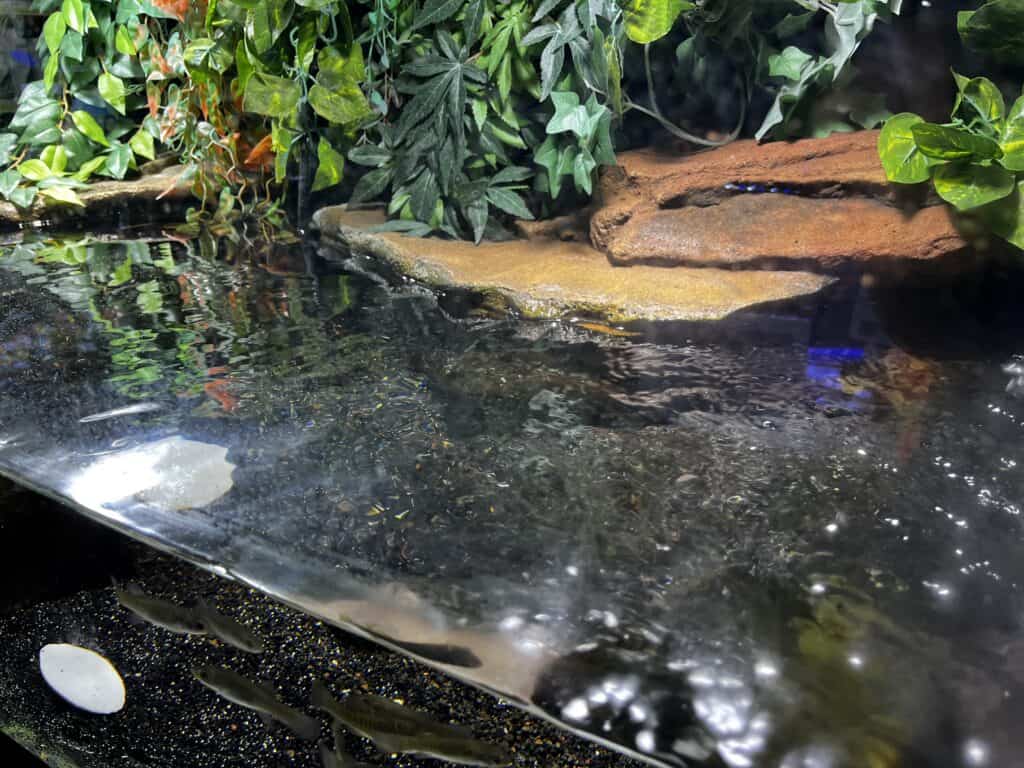
Clean Water: An aquatic turtle’s water is not just part of its habitat; it is also where the turtle hydrates and eats many of its meals.
- You must have a filter for your turtle’s water, and it typically will need to be much larger than what is required for a fish tank of comparable water volume.
- Just like an aquarium, turtle tanks need regular water changes and replacement of evaporated water. Be sure to dechlorinate any tap water before use.
- Dirty turtle water is not only dangerous to the health of your turtle, but also to you, the keeper. Reptile droppings can contain harmful pathogens like salmonella.
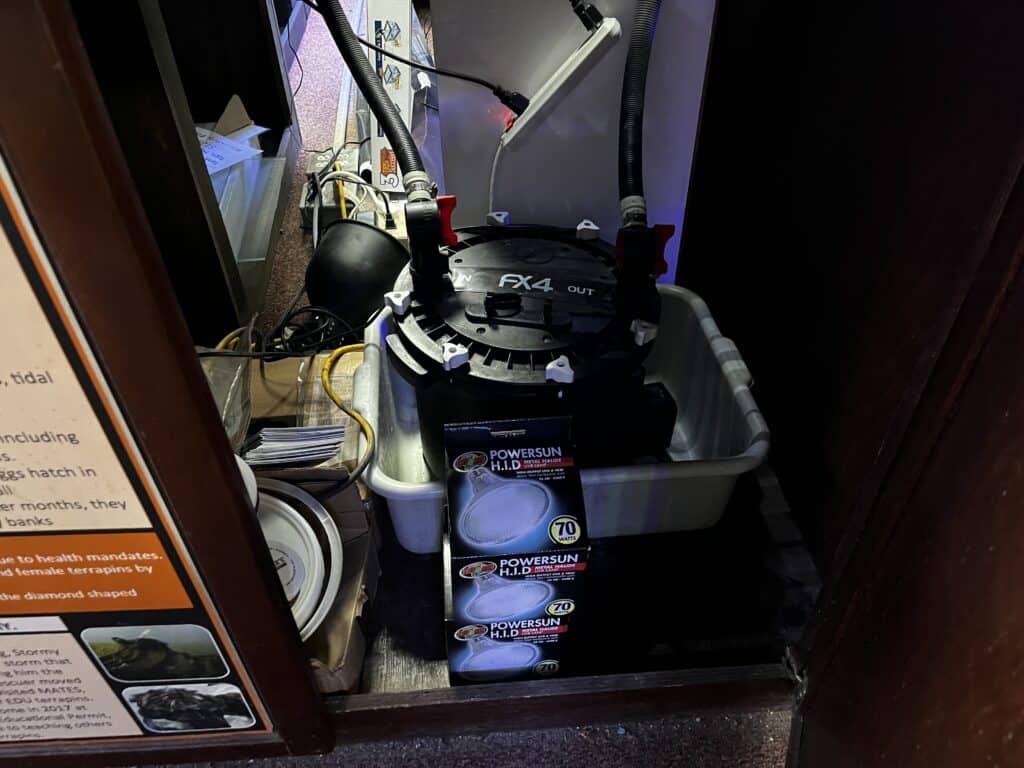
Heating: reptiles are cold-blooded and need warm and cold areas in their enclosure that they can move between in order to regulate temperature.
- The turtle’s dry area should have a heat lamp (different species require different warm temperatures) that allows them to mimic basking in the sun and helps them to completely dry off. If this heater produces visual light, it must be turned off at night.
- A submersible water heater should be utilized to keep the water at a stable temperature of 70 degrees Fahrenheit or warmer to keep your turtle active and ensure that it stays warm enough to eat and digest food.
- Many keepers will also provide a night heat lamp that puts out heat without light in order to keep the enclosure warm when the day light is off. Do not use a red light bulb as a night heater. It produces too much light and can interfere with the turtle’s ability to sleep.
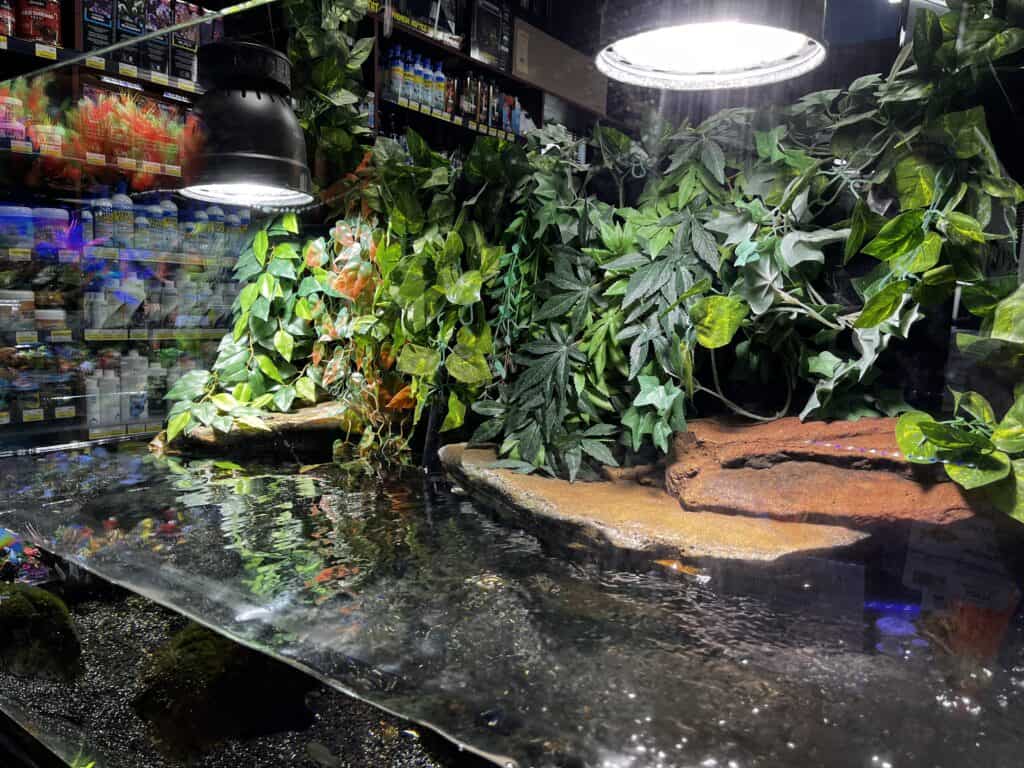
Lighting: Just like both humans and fish, turtles need a day and night lighting cycle to know when to sleep and when to be active. This is achieved in the wild with the sun. In addition to light and warmth, the sun also provides reptiles with UVB radiation, which allows their bodies to produce vitamin D.
- Since pet reptiles live indoors, keepers need to provide a UVB bulb in the turtle’s enclosure to make up for the lack of sun exposure. This bulb should be replaced every 6-12 months depending on the measured UVB output after months of use.
- If your turtle does not have access to UVB, it will be unable to absorb calcium from its diet. Lack of UVB, Vitamin D, and Calcium causes an incurable, debilitating condition in reptiles known as Metabolic Bone Disease. In turtles, this is most often manifested as shell deformities, stunted growth, difficulty shedding, and inability to walk or swim.
Dry Dock: Aquatic turtles need a place to climb out of the water to dry off and get warm, and a spacious enclosure can even allow for more than one basking area.
- A turtle’s basking dock should allow them to completely dry off. This drying time is important for the health of their shell. A turtle that is always wet can suffer from shell rot.
- It is important for the turtle to be able to climb onto their dry dock independently. You’ll also want to make sure they can still access the platform even if water has evaporated.
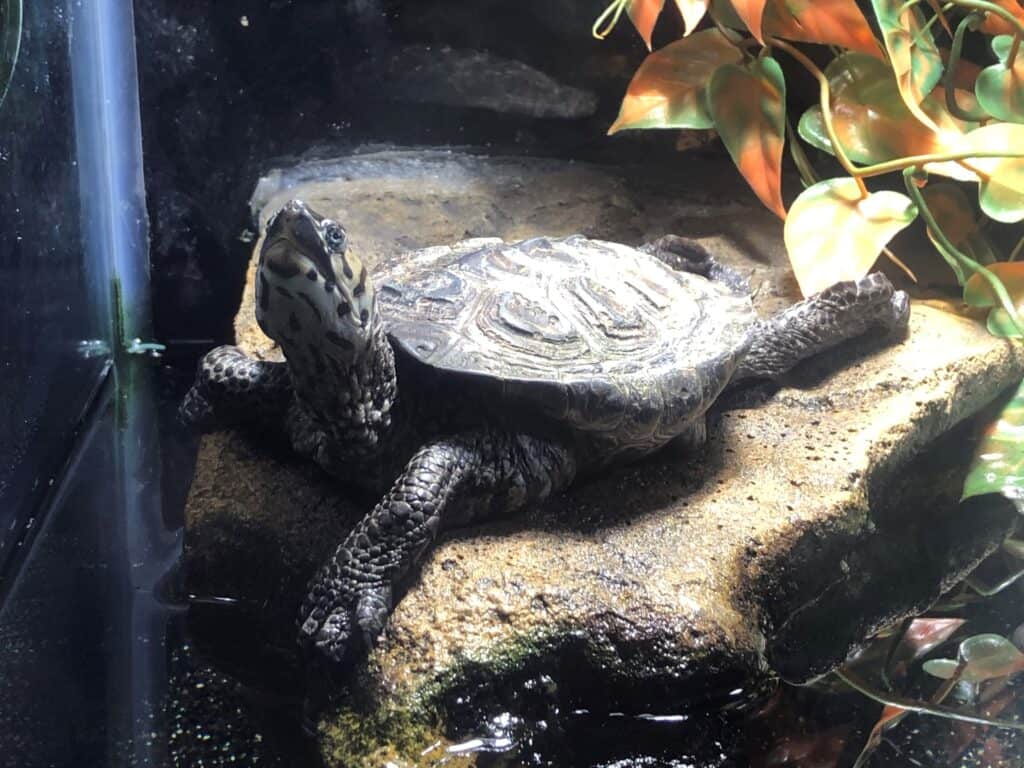
Food: The proper diet for your turtle will depend on its species, but just like fish, reptiles benefit greatly from being offered a diverse assortment of food.
- There are numerous pellet diets available for turtles. Pellets contain many important nutrients and it is easy for you to track how much your turtle is eating.
- Your turtle’s pellet diet should be supplemented throughout the week with other species-appropriate foods depending on their exact nutritional needs.
- Live fish are not a healthy or nutritionally complete diet for most turtles. Not only can live fish dirty your water, but they can carry bacteria and parasites into your turtle’s body. Goldfish and minnows in particular can be seriously detrimental to your turtle’s health.
Can My Turtle Have Friends?
- Some species of turtle will get along with other turtles when provided with enough space. The size of the enclosure, and the size and quantity of tank equipment must be increased to amply accommodate each additional turtle. Turtles will sometimes want space away from each other, and if they do not have that, it might cause fighting.
- Not every turtle will be safe to house with fish, and not every fish is appropriate to house with turtles. Fish have their own specific needs that do not always line up with your turtle. It is unfair to house two incompatible species together, as one or both of them will not have all of their needs met. In general, we do not recommend keeping fish in your turtle tank, or adding a turtle to your fish tank.
Other Important Information
- It is important to always wash your hands after handling your turtle.
- It is not always safe for your turtle to interact with other pets in the household. In addition to risk of injury, animals can swap bacteria back and forth and get each other sick.
- Most turtle health issues need to be assessed and treated by a veterinarian. As a reptile, pet turtles qualify as an exotic animal, which not every veterinary practice is equipped to treat. Make sure that you know of a few exotic vets in your area in case of emergency.
Property of Absolutely Fish Inc. and Charlotte Maxwell. No full or partial use or reproduction without written consent.
